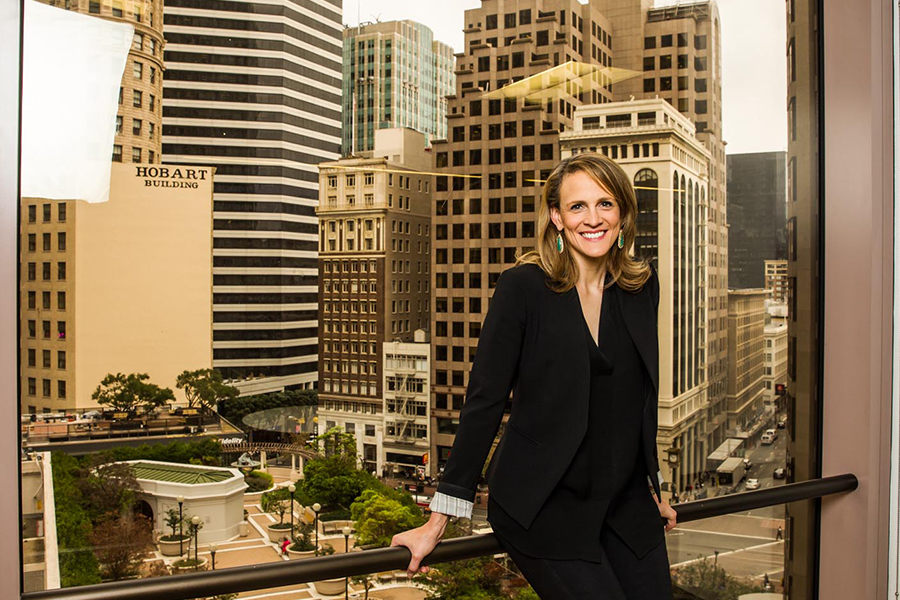
Five Questions with Christa Quarles
Christa Quarles (DC 1995) is the CEO of OpenTable, the world's leading provider of online restaurant reservations, seating more than 24 million diners per month via online reservations across more than 43,000 restaurants. Prior to joining OpenTable, Quarles served as the chief business officer for Nextdoor and the SVP and general manager at The Walt Disney Company. Earlier in her career, she worked on Wall Street as an equity research analyst covering the internet sector. A graduate of Harvard Business School and Carnegie Mellon's Dietrich College of Humanities and Social Sciences (with degrees in economics and German), Quarles is an advocate for woman in business, calling for corporate America to recognize there’s a problem with gender diversity, especially at the leadership and board levels, and to create actionable steps to resolve the problem.
On Thursday, March 8, at Noon EST, Christa will lead a Q&A discussion “Sisterhood of Silicon Valley” as part of the CMUConnect Professional Development Webinar series. She will explore her experience as a female business leader and where she sees the future of women in the technology industry during this webinar.
Christa sat down with us to answer five questions about the importance of diversity in today’s business landscape, how she leads and why food is essential to the human experience.
Q: Why is equal representation for women in corporate America so important?
A: When you get to equal representation, you position women to bring their whole selves to work. And when you do that, you improve productivity. Ultimately, this is about harnessing the workforce that is available to us — men and women — which benefits corporate America. You can read more about my own crusade to get OpenTable to 50/50 here.
Q: What are the benefits companies gain from gender diversity?
A: The data shows that these companies perform better. According to McKinsey’s Diversity Matters report, companies that are more gender diverse are 15 percent more likely to have better financial results than those with less diverse workforces. Rocío Lorenzo’s research team at Boston Consulting Group found that companies where women represent at least 20 percent of its leadership team are more innovative than those with more male-dominated teams. Ultimately, they have higher profits; they have higher growth; they deliver more to shareholders. Ultimately, it is good business to be more inclusive.
Q: What was the most valuable thing you learned at CMU, and how did it prepare you for your career?
A: I really learned great prioritization. I had a lot going on in my college life – I played two sports, I was in a sorority, I was working hard to get good grades, I had a job as I was paying my way through CMU – and so there were all these divergent demands on my time. And I really had to make important choices around them. In many ways, it’s not too different from my day today — lots of constituencies, lots of areas pulling at me, lots of choices to make. There are 50 plates in the air every day, and I have to pick which 10 to keep spinning. CMU was definitely the first place I had to do that in a meaningful way.
Q: What three lessons will attendees take away from this webinar?
A: The importance of leadership — that is what this issue is really about — who has the power to make change and influence outcomes and the responsibility that goes along with it. When I was early in my career, I shut off parts of myself because I thought that’s what it took to succeed. I want people to get comfortable with who they are and what value they bring to the table and be confident about their style. And finally how to embrace the power of vulnerability. When you expose and own your vulnerability you become the most powerful person in the room. I think there is something paradoxical about that. It’s scary to share the weakest part of yourself, but the moment you own that, you become so much stronger as a result. People will connect with you in a different way.
Q: If you weren’t in tech, what field would you pursue and why?
A: I think I would be in the psychology field. Half of my job is psychology! Understanding motivations, why people behave the way they do, what in the background drives their fears and ambitions. I find it to be fascinating.
Join Christa on March 8 at Noon EST for Sisterhood of Silicon Valley as part of the CMUConnect Professional Development Webinar series. Register for this free webinar today.